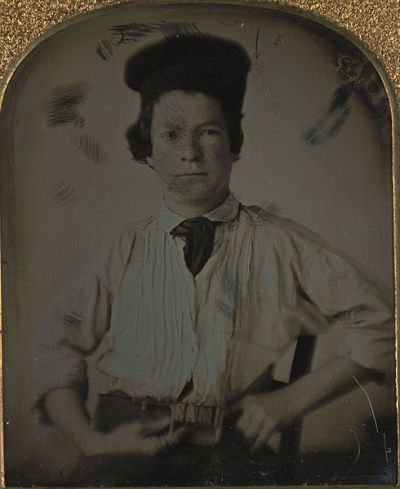
Mark Twain (pen-name of Samuel Clemens) (born 30 November, 1835; died 21 April, 1910), pictured above in an 1850 photograph by G. H. Jones
‘It was a big river, below Memphis; banks brimming full, everywhere, and very frequently more than full, the waters pouring out over the land, flooding the woods and fields for miles into the interior; and in places, to a depth of fifteen feet; signs, all about, of men’s hard work gone to ruin, and all to be done over again, with straitened means and a weakened courage. A melancholy picture, and a continuous one;—hundreds of miles of it. Sometimes the beacon lights stood in water three feet deep, in the edge of dense forests which extended for miles without farm, wood-yard, clearing, or break of any kind; which meant that the keeper of the light must come in a skiff a great distance to discharge his trust,—and often in desperate weather. Yet I was told that the work is faithfully performed, in all weathers; and not always by men, sometimes by women, if the man is sick or absent. The Government furnishes oil, and pays ten or fifteen dollars a month for the lighting and tending. A Government boat distributes oil and pays wages once a month.’
—from Life on the Mississippi (1883)

No comments:
Post a Comment